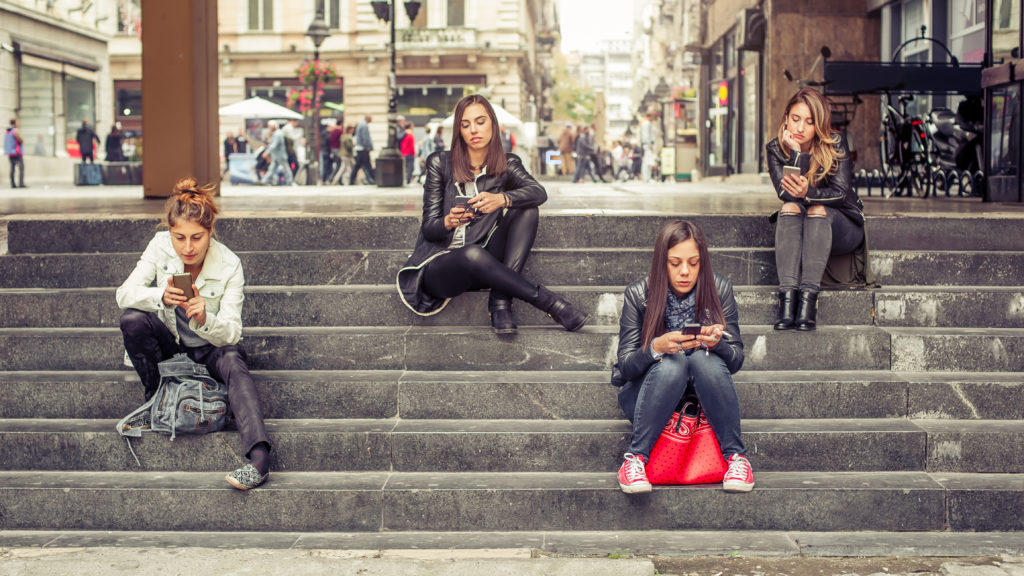Quick Hits
Daily brief research updates from the cognitive sciences

Social media seems to hijack our brains – or at least according to popular narratives. Most of us have experienced this where you get stuck in an endless stream of content, good, or bad, and then suddenly a whole lot of time has suddenly disappeared. The common accusation against social media is that it hijacks our brain, those well-known dopamine hits and then gets you addicted.
There is some truth in this, but a group of researchers from the University of Washington has analysed user behaviour and come up with another reason – and also, interestingly for us, some solutions also. So, what did they find?
They found that a state of dissociation was commonly observed by participants, and this also accounted for many of the negative effects. Dissociation is that feeling of being completely engrossed in something and losing track of what is happening around you. This is that feeling of going to check one tweet and suddenly 30 minutes have gone. Of importance is that the feeling at the end of this is negative. This is in contrast to a positive flow state whereby you enter into a productive state of dissociation.
So how do you get yourself an others off of this mindless scrolling that leaves to a general feeling of dissatisfaction and negative dissociation?
To answer this the researchers developed an app that was connected to users’ twitter accounts. This then enabled them to construct either internal interventions – those that were built into the design of the app, or external interventions such as timers and reminders (that are already available).
The internal interventions made user build lists and when they went into the list and had seen all the relevant tweets, the list finished, a notification came up that said “you’re all up to date”. This you will note puts the user much more in control of the content thereby increasing intentionality: actually want this information which they have deemd as useful or important for themselves. This then gives them this information but nothing else. This was particularly effective and appreciated by the participants – it avoided dissociation and turned it into a more effective tool.
Of interest is that the external interventions such as timer warnings were considered useful when one had entered into a state of dissociation. However, for those users who became more intentional in their usage of the app, these then became annoying. If you are already in control, you do not need these warnings.
So, there are a few really big take aways from this research. First, being in control of your social media experience is liberating and lets you get the best out of social media – but it must be noted that social media is designed not to do this! Secondly, that dissociation is a big threat for it leads to blindly stumbling along and is a dissatisfying experience – yes, social media is designed to do this to you.
So, in summary, the better way to think of social media is not as addictive but dissociative. And the way to get around this is to be more intentional and in control of your experience with social media. Then you get the best of both worlds, the wealth of information, that you want, in more a controlled and structured way, and you get the rest of your life also!

Andy Habermacher
Andy is author of leading brains Review, Neuroleadership, and multiple other books. He has been intensively involved in writing and research into neuroleadership and is considered one of Europe’s leading experts. He is also a well-known public speaker speaking on the brain and human behaviour.
Andy is also a masters athlete (middle distance running) and competes regularly at international competitions (and holds a few national records in his age category).
Reference
Layla Unger, Vladimir M. Sloutsky.
Ready to Learn: Incidental Exposure Fosters Category Learning.
Psychological Science, 2022; 095679762110614
DOI: 10.1177/09567976211061470
More Quick Hits
Learning at double-speed?
Quick HitsDaily brief research updates from the cognitive sciences ouldn’t it be great if we could learn things double speed? Well, maybe we can. At least according to a study out of the University of California. During the pandemic many...
The “drunken monkey” hypothesis – proven
This had to be a story I covered – monkeys and alcohol sounds too good to pass up. But this is also linked to the “drunken monkey” hypothesis: that humans developed their love for alcohol in earlier primitive times accidentally, and then intentionally, eating fruit...
The Newly Discovered Bias That Makes Us Think We Are More Diverse Than We Are
A few weeks ago I reported on some newly discovered ways we are biased namely that we consider generic terms such as “people” as equivalent to “men” rather than men and women. This was specifically focused on gender bias but this latest piece recently published shows...
Self-awareness of autism leads to better quality of life
Autism has become a well-known diagnosis in recent years. Though some people seem to be against this sort of labelling, and the general increase in different label of mental conditions, a study out of the University of Portsmouth shows why this is actually a good...
Optimal sleep improves your brain, mental, and physical health - and it’s not as much as you think
I’ve reported multiple times on sleep and how it affects just about everything form cognitive performance, to brain plasticity, to physical performance, to mental health, and to metabolism. The question...
No change for a century – children’s backgrounds still predict the same educational outcomes
Educational opportunities have changed dramatically for children over the last century – schools have changed, and college and university admissions have grown. Or so we might think at least. But according to a study out of the University of York, that is not the...






